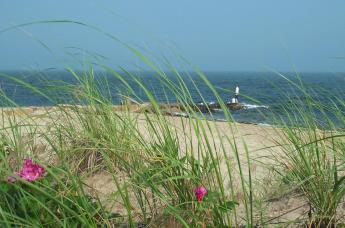Session #1453, Saturday, March 29 11am to 12 pm Boston Marriot Copley Place
The New England Ocean Science Educatioin Collaborative (NEOSEC): A Partnership to Promote Ocean Science Literacy
Presenters: Diana Payne, Lauren Rader, JB Kavaliauskas
Abstract: The New England Ocean Science Education Collaborative is a group of ocean science education institutions across New England dedicated to promoting the Ocean Literacy Essential Principles and Fundamental Concepts.
With the understanding that participating institutions can gain more by acting as a regional organization than individually, we have dedicated a portion of our time and energy to collaborative opportunities. One such activity was our Ocean Science Literacy Summit, an inaugural conference for ocean science education facilitators (i.e., the bridge-builders between scientists and educators); ocean scientists; school and education department administrators; teachers; science writers; and policy makers held in November, 2006.
A major focus has been the translation of cutting edge ocean research into the classroom and public media. This session will present this collaborative organization's initiation, common mission and goals, operating procedures, and the successes and shortcomings of our inaugural summit.
We invite anyone interested in joining our organization, starting a similar local, regional, or national partnership, or learning about translating research into educational materials to participate.
